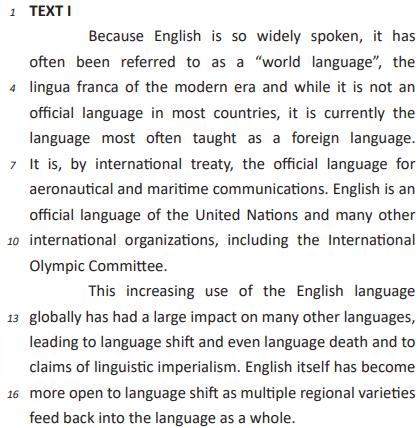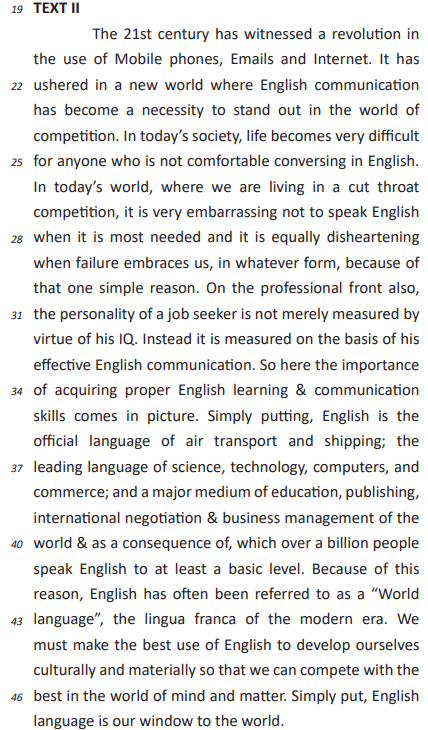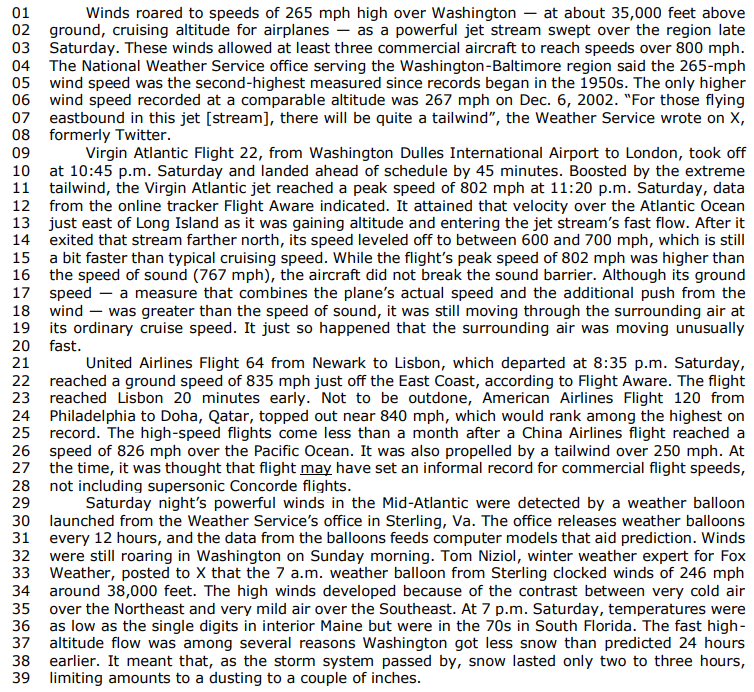Questões de Concurso
Foram encontradas 2.652 questões
Resolva questões gratuitamente!
Junte-se a mais de 4 milhões de concurseiros!


In text II, the verbs “has witnessed” (line 20), “has become” (line 23) and “has ushered” (lines 21 and 22) are in the present perfect tense, as well as the sentence “Because of this reason, English has often been referred to as a ‘World language’, the lingua franca of the modern era.” (lines from 41 to 43).
Taking the meme’s verbal and nonverbal clues into account, it is possible to assert that:

Planes top 800 mph as near-record winds sweep high over Mid-Atlantic

(Available at: www.washingtonpost.com/weather/2024/02/18/record-jet-stream-winds-dc-flights/ – text
specially adapted for this test)
Text CB1A7
Whenever a global economic transformation takes place, a single city usually drives it forward. Ghent, in modern-day Belgium, was at the core of the burgeoning global wool trade in the 13th century. The first initial public offering took place in Amsterdam in 1602. London was the financial centre of the first wave of globalisation during the 19th century. Today the city is San Francisco.
California’s commercial capital has no serious rival in generative artificial intelligence (AI), a breakthrough technology that has caused a bull market in American stocks and which, many economists hope, will power a global productivity surge. Almost all big AI start-up companies are based in the Bay Area, which comprises the city of San Francisco and Silicon Valley (largely based in Santa Clara county, to the south). OpenAI is there, of course; so are Anthropic, Databricks and Scale AI. Tech giants, including Meta and Microsoft, are also spending big on AI in San Francisco. According to Brookings Metro, a think tank, last year San Francisco accounted for close to a tenth of generative AI job postings in America, more than any other city of the country. New York, with four times as many residents, was second.
Internet: <www.economist.com> (adapted).